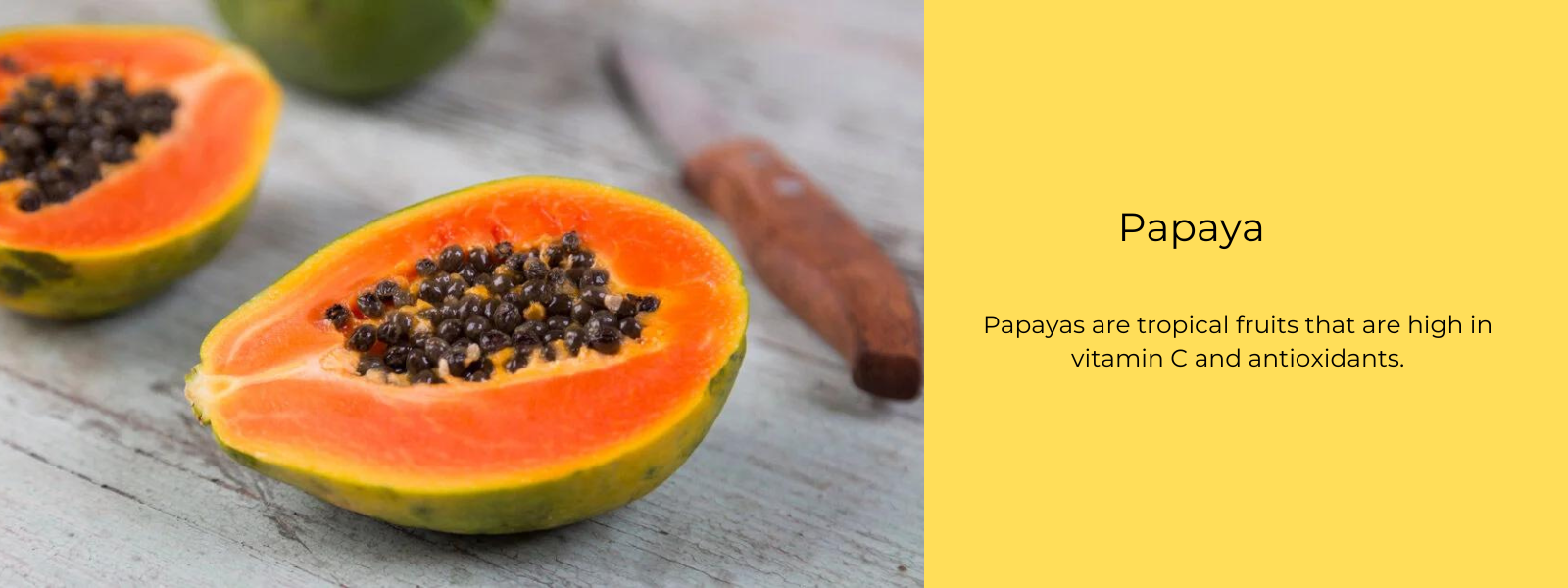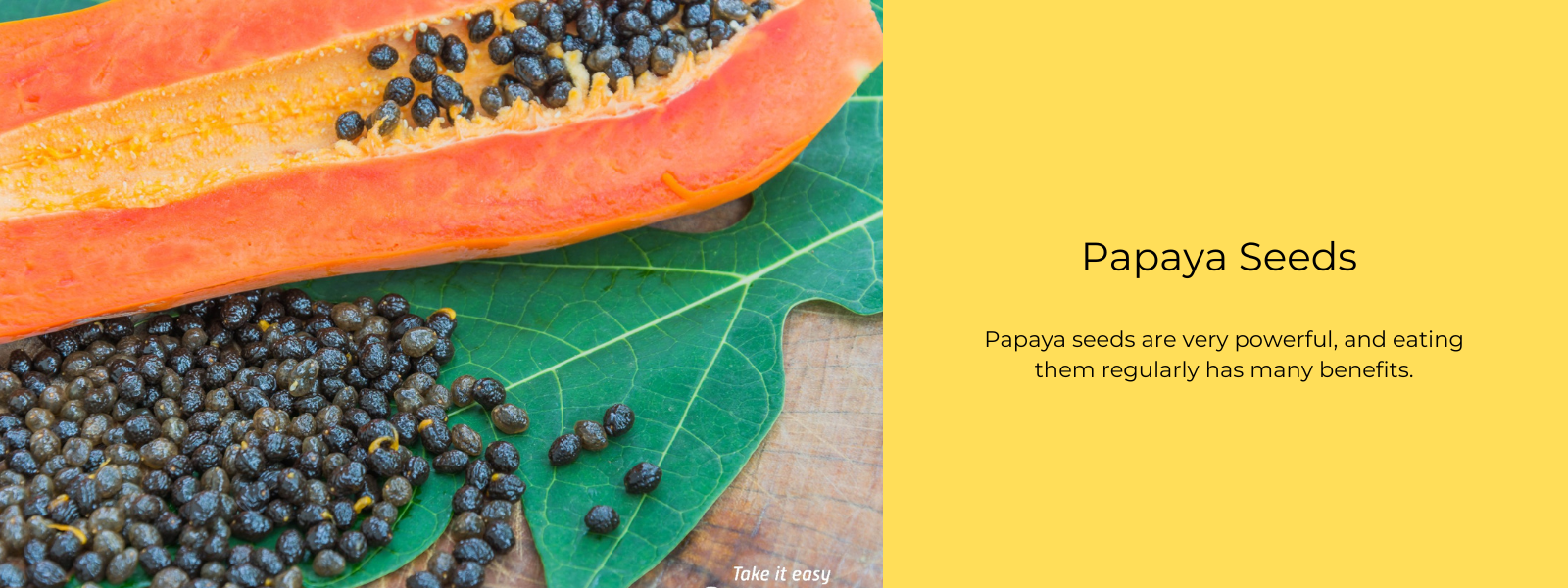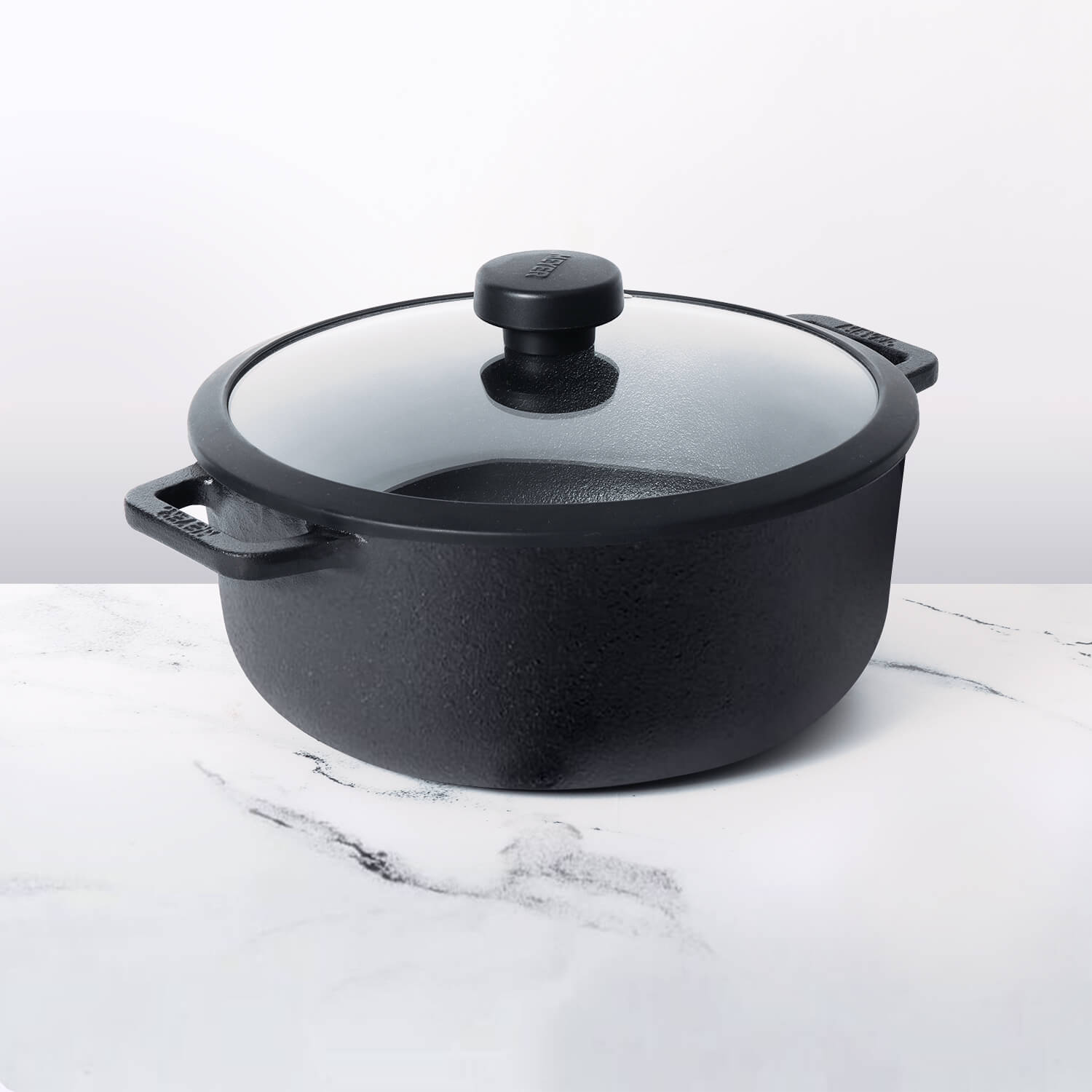Papaya is a rich source of vitamin A, primarily through its high beta-carotene content, which the body converts into vitamin A. This vital nutrient offers numerous health benefits, including supporting optimal vision by preventing conditions such as night blindness and age-related macular degeneration. Vitamin A in papaya also strengthens the immune system by maintaining healthy mucous membranes and skin, which act as barriers against infections. Additionally, it promotes healthy skin by aiding in cell regeneration and repair, helping to maintain a youthful appearance. The antioxidants in papaya further protect the body from oxidative stress, reducing inflammation and supporting overall well-being.
Table of Contents
What Makes Papaya Rich in Vitamin A?
Papaya is abundant in vitamin A, primarily sourced from its high levels of beta-carotene, a carotenoid that the body converts into vitamin A. The vibrant orange color of papaya is a natural indicator of its beta-carotene content. This fruit also contains other carotenoids like lutein and zeaxanthin, which contribute to its vitamin A richness. The combination of these compounds makes papaya a powerful source of this essential nutrient.
Health Benefits of Papaya
- Vision Health: The beta-carotene in papaya is crucial for maintaining good vision. It helps protect the eyes from oxidative damage and reduces the risk of age-related macular degeneration and cataracts. Regular consumption of papaya can support overall eye health and enhance visual acuity.
- Immune Support: Papaya is rich in vitamin C, which works synergistically with vitamin A to strengthen the immune system. Vitamin A supports the integrity of mucous membranes and skin, which act as first lines of defense against infections. Together with vitamin C, it enhances the body's ability to fight off pathogens and supports immune health.
- Skin Health: The combination of vitamin A and vitamin C in papaya promotes healthy skin. Vitamin A aids in cell regeneration and repair, helping to maintain a smooth and youthful complexion. Vitamin C supports collagen production, which improves skin elasticity and reduces wrinkles. Papaya’s antioxidants also protect the skin from environmental damage and premature aging.
- Digestive Health: Papaya contains an enzyme called papain, which aids in digestion by breaking down proteins and enhancing nutrient absorption. The fruit's fiber content also supports digestive health by promoting regular bowel movements and preventing constipation.
- Anti-Inflammatory Benefits: The antioxidants in papaya, including beta-carotene and vitamin C, have anti-inflammatory properties. These compounds help reduce inflammation in the body, potentially lowering the risk of chronic inflammatory conditions and supporting overall health.
Ways to Use Papaya
- Fresh and Raw: Enjoy papaya fresh and raw as a sweet and nutritious snack. Its natural sweetness makes it a refreshing option for a healthy diet.
- Smoothies: Blend papaya into smoothies with other fruits like bananas, mangoes, or berries. Adding a splash of yogurt or a squeeze of lime can enhance the flavor and nutritional content.
- Salads: Incorporate diced papaya into salads for a burst of sweetness. It pairs well with greens, nuts, and cheeses, adding a tropical touch to your meal.
- Salsas and Sauces: Use papaya to create salsas or sauces for dishes like grilled chicken or fish. Its sweetness complements savory flavors and adds a unique twist to your recipes.
- Desserts: Incorporate papaya into desserts like fruit salads, sorbets, or yogurt parfaits. Its natural sweetness makes it a healthier alternative to processed sugars.
Raw vs. Ripe Papaya: Which is Better?
Both raw and ripe papayas offer nutritional benefits, but they serve different purposes. Ripe papaya is sweet, soft, and more palatable for fresh consumption or use in smoothies and desserts. It provides higher levels of bioavailable vitamin A and is easier to digest. Raw papaya, on the other hand, contains higher levels of papain, an enzyme beneficial for digestion. It is often used in savory dishes or salads where its firmer texture and slightly tangy flavor can be advantageous.
Conclusion
Papaya is a nutrient-rich fruit with significant health benefits, largely due to its high vitamin A content from beta-carotene. It supports vision health, boosts the immune system, promotes healthy skin, aids digestion, and offers anti-inflammatory properties. Whether consumed raw or ripe, papaya can be incorporated into a variety of dishes, making it a versatile and valuable addition to your diet. Enjoying papaya regularly can contribute to overall health and well-being while adding a delicious tropical flavor to your meals.











Leave a comment